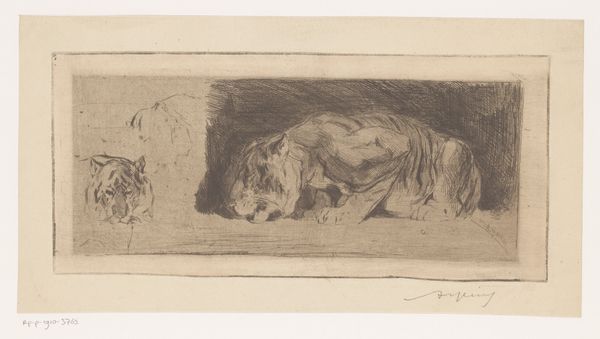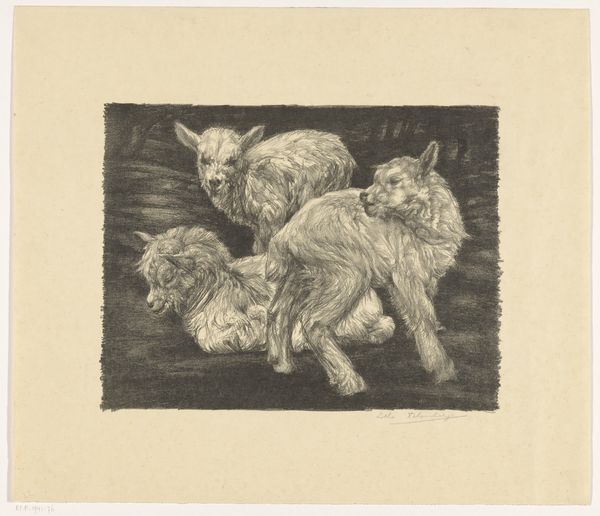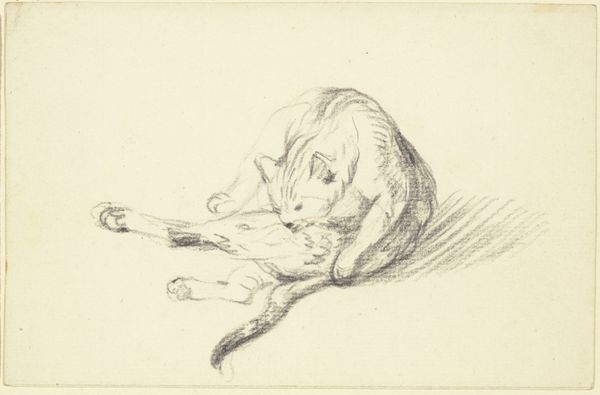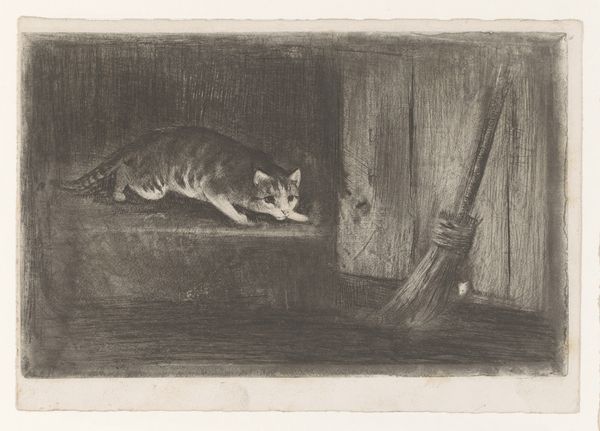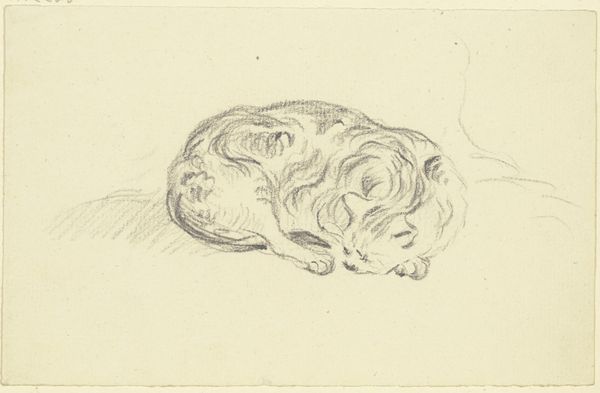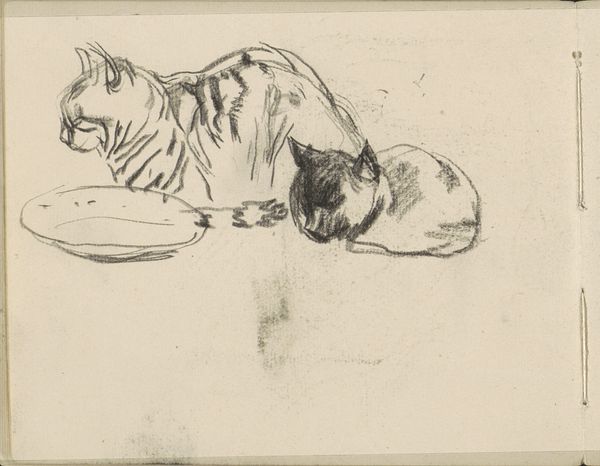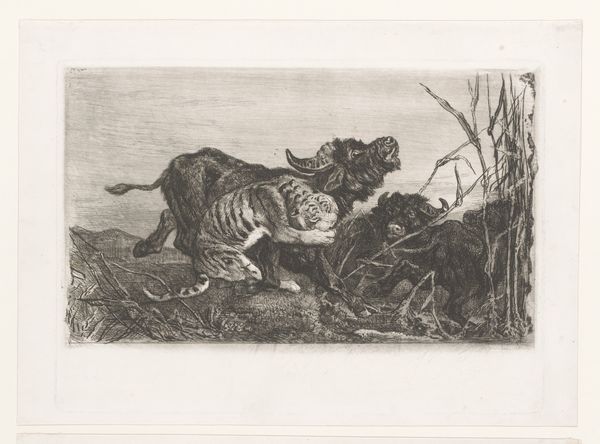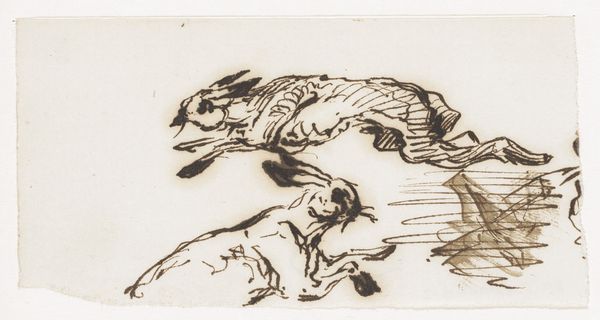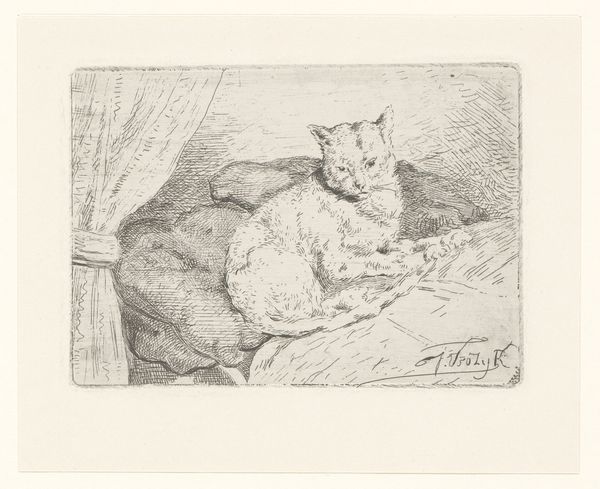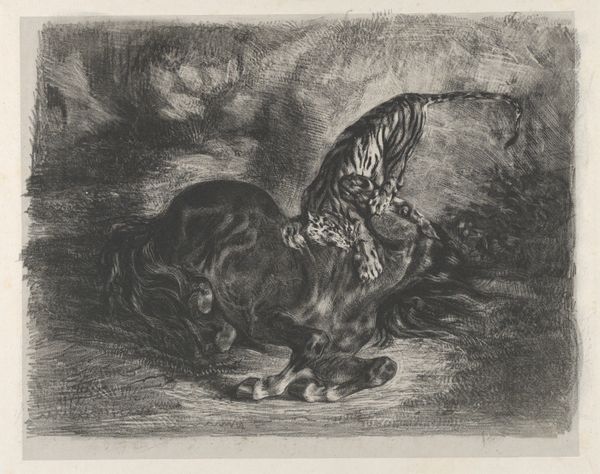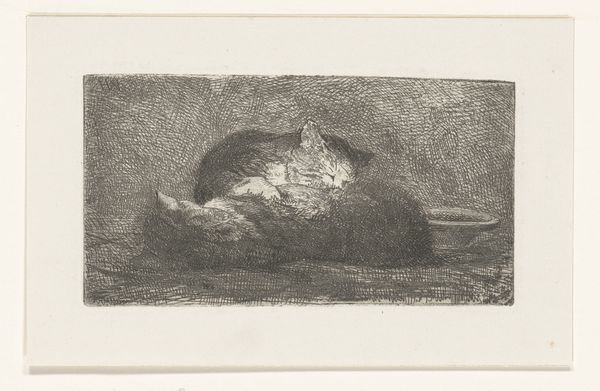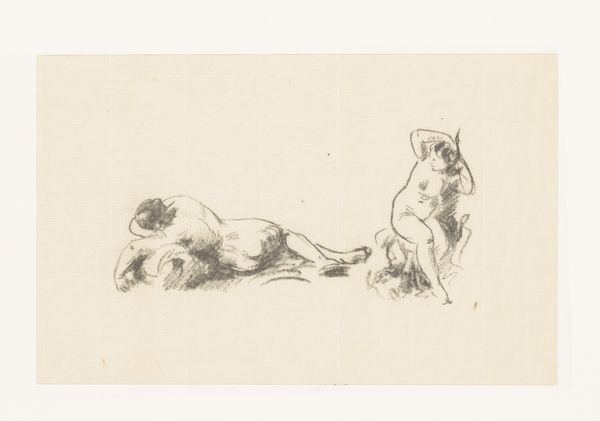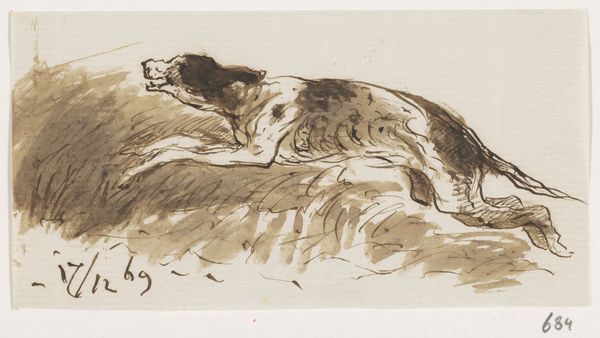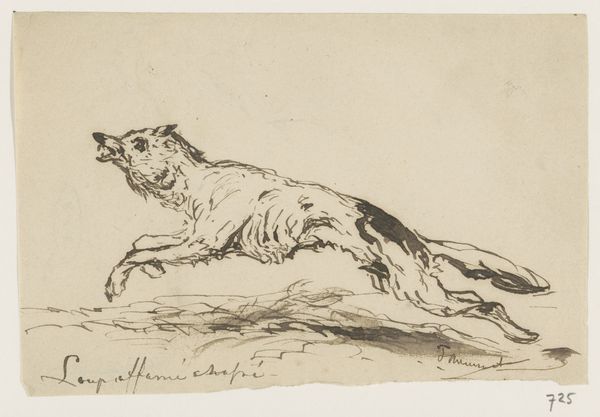
drawing, ink, pen
#
portrait
#
drawing
#
light pencil work
#
ink drawing
#
pen sketch
#
pencil sketch
#
personal sketchbook
#
ink
#
ink drawing experimentation
#
pen-ink sketch
#
sketchbook drawing
#
pen
#
pencil work
#
sketchbook art
#
realism
Dimensions: height 144 mm, width 287 mm
Copyright: Rijks Museum: Open Domain
Armand Heins created this study sheet with lionesses and a tiger using etching, a printmaking technique, sometime between the late 19th and early 20th centuries. With etching, an artist covers a metal plate with a waxy, acid-resistant ground. They then use a needle to draw through the ground, exposing the metal. When the plate is dipped in acid, it bites into the exposed lines, creating an image that can be inked and printed. The material quality of the metal plate and the artist's skilled manipulation of acid and tools contribute to the print's overall aesthetic. The velvety blacks and fine lines capture the texture and weight of the big cats. Heins likely visited a zoo to study these animals, skillfully translating his observations into the etched lines. The choice of etching, a method that allows for detailed, reproducible images, highlights the evolving relationship between art, labor, and the means of production, challenging traditional boundaries between fine art and craft.
Comments
No comments
Be the first to comment and join the conversation on the ultimate creative platform.
